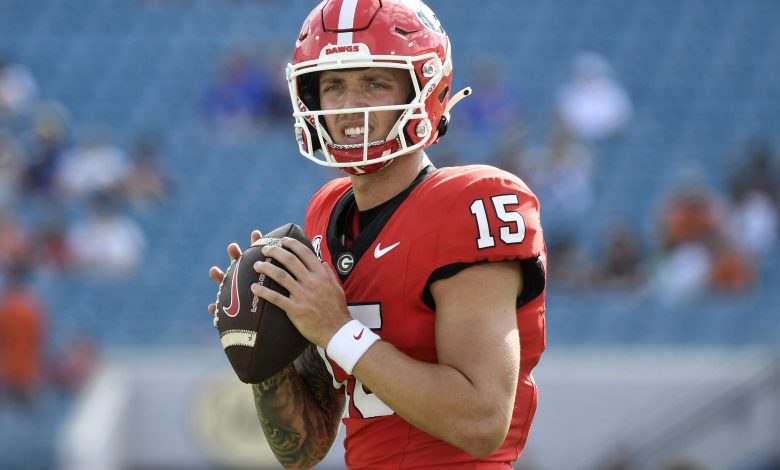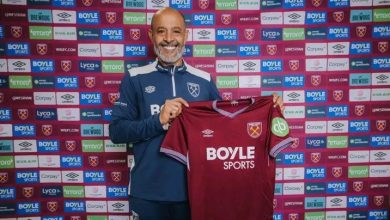Breaking: Georgia bulldogs elite QB Carson Beck reportedly set to Decommit and flip to another NCAA program due to…….

The Georgia Bulldogs’ standout quarterback, Carson Beck, has reportedly made the decision to decommit from his commitment to the program, choosing to flip to a different NCAA school. This unexpected move has raised questions within the college football community, as Beck, who was once seen as an integral part of Georgia’s future, now appears to be shifting gears in his college career. Several factors appear to have contributed to Beck’s decision to decommit and pursue a different path in the NCAA, and understanding these reasons provides insight into his shift in commitment.
Beck’s decommitment is a significant development for both Georgia and the other schools competing for his commitment. The Bulldogs had been hopeful about Beck’s role in their future, given his strong potential as a quarterback. The fact that he had committed to Georgia previously added to the excitement, as the team was planning to build around him in the coming seasons. Beck, with his impressive skill set and athleticism, was considered a future star for the Bulldogs. However, this shift in his commitment is now prompting many to look deeper into what may have led to such a sudden change in plans.
One potential reason for Beck’s decision to flip could be related to the coaching staff changes or shifts in leadership that may have occurred at Georgia. Coaching changes are often one of the most influential factors in a player’s recruitment process. If Beck felt that the new coaching direction was not aligned with his own goals or vision for his career, it could have played a pivotal role in his decision. Coaches play a central role in a player’s development, especially in a critical position like quarterback. If Beck was not confident in the direction the team was heading, it would be understandable why he might choose to look for a new home.
Another reason behind Beck’s decision to decommit could stem from competition within the Georgia program itself. Georgia has consistently been a powerhouse in college football, attracting some of the best talent in the country. While this is a testament to the program’s success, it also means intense competition for starting roles. Beck, despite being a top recruit, could have faced challenges with securing the starting quarterback position amid the influx of other talented quarterbacks. If Beck felt that his chances of starting for Georgia were slim due to stiff competition, it might have pushed him to seek opportunities at a different program where he had a clearer path to the starting lineup.
Additionally, Beck’s decision to flip could be attributed to a desire for a better fit in terms of offensive system or scheme. Each quarterback has a unique skill set that can thrive in particular types of offenses. Beck may have realized that the offensive style at Georgia was not the best match for his strengths, which could have led him to reevaluate his commitment. Quarterbacks often seek out programs that align with their playing style, whether that involves a fast-paced offense, a more traditional pro-style attack, or an offense that emphasizes a strong running game. If Beck believed that another program offered a better fit for his abilities, it could explain why he decided to decommit and explore his options elsewhere.
The influence of other NCAA programs could also play a crucial role in Beck’s decision. Many schools may have increased their recruiting efforts and presented him with offers that seemed more appealing. If Beck was wooed by other top programs that were willing to provide more opportunities, whether in terms of playing time, development, or potential success, this might have encouraged him to reconsider his commitment to Georgia. In college football, recruiting is a highly competitive process, and other schools may have been able to offer Beck an environment that seemed more conducive to his goals for the future.
Moreover, Beck’s decommitment could be related to personal reasons that have nothing to do with Georgia specifically. College athletes, especially quarterbacks, are under immense pressure as they decide where to spend the next several years of their lives. Factors such as family dynamics, personal relationships, or lifestyle preferences could influence a recruit’s decision. Beck may have had personal considerations that led him to change his mind about Georgia, even if the decision wasn’t necessarily linked to football factors alone.
In conclusion, Carson Beck’s decision to decommit from the Georgia Bulldogs and flip to another NCAA program is a significant and surprising development. While it is clear that Beck’s talent and potential as a quarterback remain undiminished, the reasons behind his decision to seek a new opportunity are multifaceted. Coaching changes, competition for playing time, the desire for a better offensive fit, or even the allure of other NCAA programs could have contributed to his change of heart. Additionally, personal factors may have played a role in Beck’s decision. Whatever the reasons may be, this move will undoubtedly shape his college football future as he prepares to embark on a new chapter in his athletic career.





